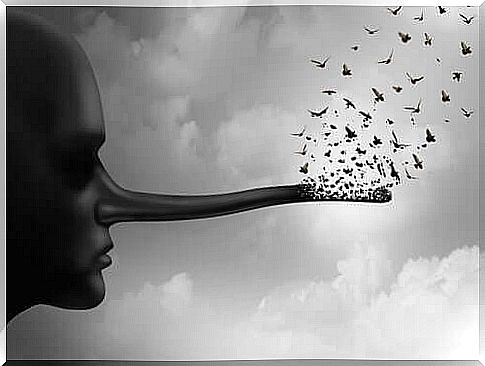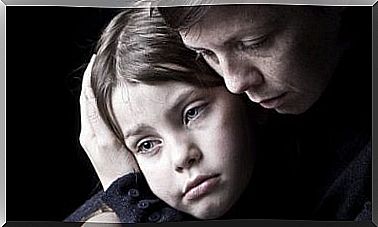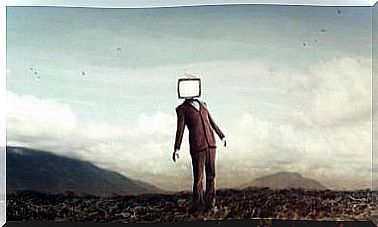White, Compulsive And Pathological Lies

Few things sow distrust like lies. If you ask around, they will probably tell you that no one wants to be in the company of a liar. in reality, however, in the social sphere there are justified lies, the so-called white lies that almost everyone, to some extent, uses.
A study conducted by the University of Massachusetts revealed that 60% of adults can’t have a ten-minute conversation without telling a lie. This only if the two interlocutors already know each other; if it is the first time they speak to each other, however, the average amounts to three lies in the first ten minutes.
Apparently, one of the most uncomfortable truths in existence is that the human being lies almost from birth. This study was conducted before the spread of social networks. Facebook and Twitter probably have already increased the percentages, as they provide scenarios where the opportunities for lying are much wider, as is their spread.
While many think that social media is primarily responsible for spreading lies, the truth is that they simply play the role of a sounding board for human predisposition to lie. What kind of lies do you tell? White , compulsive or pathological lies ?
White lies
As soon as they learn to speak, children begin to use words to lie. It starts with the simplest lies, which are spoken in 2-3 years, to reach 3-4 years with the elaboration of more sophisticated lies. In developmental psychology all of this, although it may appear to be a contradiction, is recognized as a sign of social intelligence.
Children, and even many adults, manage white lies in a completely natural way, considered completely harmless and aimed above all at safeguarding their own feelings and those of others. Let’s say they could be regarded as a kind of social lubricant.

Truth and lies
Apparently, it is not the truth or a lie that makes us different as human beings. Rather, it is the degree and type of lie we use most often that truly distinguishes us from each other. From the simple “I’m fine”, when in reality we feel terrible, to inventing an excuse to justify a delay, to the most cruel and interested lie; there is a broad spectrum with multiple levels and types of lies.
It seems that it is precisely the need to satisfy the expectations of others that pushes the human being to lie. Furthermore, we live, grow and are educated in the purest contradiction. The children are told not to lie, but then they are asked to simulate the surprise when they open the birthday present from their grandmother, even if they don’t like it.
Society as a whole would collapse if we couldn’t trust each other, but at the same time it probably wouldn’t hold up if we all always told the truth.
Compulsive lies
There are people who, regardless of the use of white lies, adorn their lives with an endless series of anecdotes, facts or stories invented or altered in some way, and therefore do not correspond to reality at all.
They are people who have become addicted to their fantastic stories and who suffer from profound insecurity. Generally, the only people hurt by this kind of lies are them. They are called compulsive liars.

Pathological lies, very different from white lies
The pathological liar is increasingly beginning to be considered a race apart. Cold and calculating, their lies contain specific goals and interests, usually selfish. They are manipulative and cunning lies. These forms of lies, unlike white lies, are used by people who base their lives on them; their falsehoods negatively affect the lives of others, cause profound damage to their victims.
Thanks to some studies, we know that pathological liars have more white matter in the prefrontal area of the brain. In general terms, white matter is associated with faster connections, greater thought flow, and greater verbal fluency. These individuals also have problems with empathy and little activity in the areas responsible for emotions.
Finally, no one feels comfortable telling a lie, or at least most of us don’t like lying at all. We use white lies to protect ourselves and others. Or, at least, that’s what we want to believe. Ultimately, leaving aside moral dogmas and maxims, each one is required to face his own reflection on the truth in private, and to opt for one way or the other according to the circumstances.









